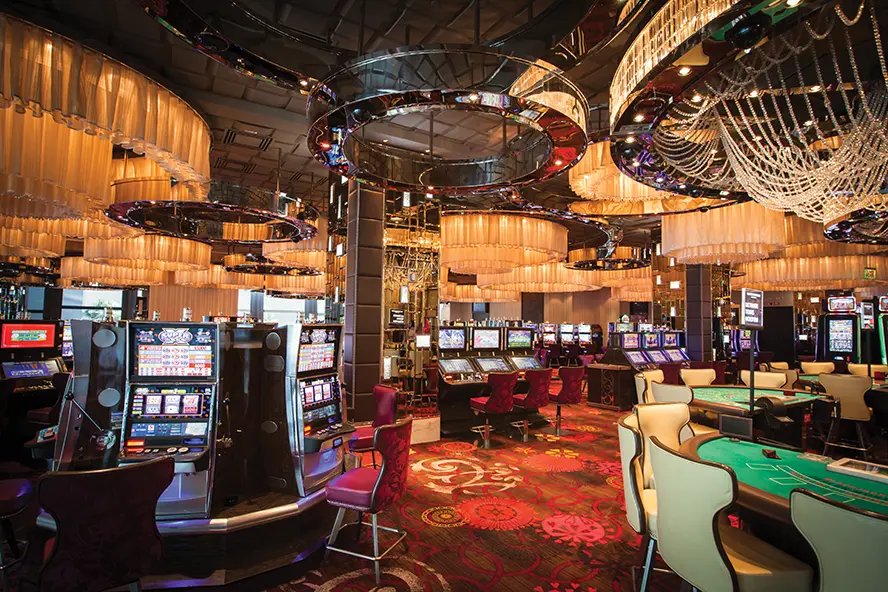Anthony Cabot is a Distinguished Fellow in Gaming Law with more than 40 years of experience, including the past five years with the University of Nevada-Las Vegas, William S. Boyd School of Law. Here he speaks with IAG about the importance of ethics within the gaming industry.

Inside Asian Gaming: When we talk about acting ethically in business, and specifically in the gaming industry, what exactly are we talking about?
Anthony Cabot: We have to be careful to distinguish legally compliant from ethical. The minimum expectation for a casino company is that it takes reasonable efforts to comply with gaming laws and regulations. An ethical casino company looks beyond its compliance obligations to the impacts of its decisions on the community, players and employees. It will give up some profits when a corporate decision would disproportionately harm any of these groups. For example, implementing a responsible gambling program beyond what the regulations may require can impact profits, but avert significant impacts on players, their families and the community.
IAG: How do the ethical obligations of a gaming company differ from those operating in other sectors?
AC: Casino companies have more significant ethical obligations than most other industries. Gambling is generally illegal, and licensed casino companies are given the privilege of offering games of chance because society has decided that responsibly operated casinos offer more societal benefits than harms. If that equation flips and the harms exceed the benefits, then the government has justification for revoking those privileges. The societal impacts can be many. The most obvious is problem gambling but others can include giving aid to criminals by allowing ownership, profit sharing or money laundering. They could extend to mistreating employees by not providing fair wages or allowing a hostile work environment. Moreover, the casino may harm the community by failing to provide a safe environment in and around the casino.
IAG: In your experience, where do companies in our industry traditionally fall short?
AC: In two ways, casino companies can become criminal organizations when they lack ethical leadership. This is an extreme case, but some casinos in unregulated countries have become centers for money laundering, drug and human trafficking, Internet fraud, and other crimes. But even in what are supposed to be heavily regulated jurisdictions, the willingness to engage in unethical behavior to maximize profits has been problematic. For example, in multiple places, casinos have been willing to overlook that some patron funds are from drug trafficking and other illegal activities. When called out for such behavior, some casinos try to justify the transgression by claiming that asking for or investigating the source of funds would insult the players. This does not relieve the casino of its role in harming society by helping move money for international drug cartels or other criminals.
 IAG: We’ve recently seen a number of examples of operators acting unethically, the most notable being in Australia where both Crown Resorts and Star Entertainment Group were found unsuitable across multiple state jurisdictions. What is your take on Australia’s experience, and what are the typical contributing factors when operators reach such ingrained levels of non-compliance?
IAG: We’ve recently seen a number of examples of operators acting unethically, the most notable being in Australia where both Crown Resorts and Star Entertainment Group were found unsuitable across multiple state jurisdictions. What is your take on Australia’s experience, and what are the typical contributing factors when operators reach such ingrained levels of non-compliance?
AC: Criticizing the Australian casinos is easy because the governments effectively aired the dirty laundry in public inquiries. But criminal actors’ ability to infiltrate the casinos there and across the world is disheartening. We have about 60 years of modern gaming regulations, but the government and the casinos get complacent and forget the appeal of this industry to criminals and the associated risks. We learned a lot from the struggles Nevada had to overcome to rid the industry of Meyer Lansky and the American Mafia. Then we forgot how regulatory best practices apply to modern international gangsters. If all that drives the gaming industry is to maximize profits (and taxes), then companies and regulators will make bad decisions.
 IAG: Some ethical issues within our industry, such as the mandate to run a fair game, are clearly black and white, but some other issues may be less clear cut. What advice would you have for gaming companies in navigating these more complex decisions?
IAG: Some ethical issues within our industry, such as the mandate to run a fair game, are clearly black and white, but some other issues may be less clear cut. What advice would you have for gaming companies in navigating these more complex decisions?
AC: Ethics issues are often not black and white but a balance of competing interests. Therefore, casinos cannot simply develop codes of conduct and expect to cover all situations. So, a key is having procedures to identify and disclose potential ethical issues and have leadership make rational decisions. In addition, management and staff should have the training to identify problems and a supportive corporate culture that rewards bringing the matters to management’s attention. Finally, an experienced and credentialed ethical officer can help work through the various ethical implications so leadership can intercede and prevent objectionable behavior.
IAG: Why is a Code of Conduct important?
AC: Codes of conduct are essential for three reasons. The first is they are management and staff guidelines to comply with a myriad of laws and regulations governing matters such as gaming, political involvement, employment, environmental and antitrust laws. Second, codes can guide programs the casino has implemented that reflect its core ethical principles. For example, if a casino decides to implement a responsible gaming program that goes beyond what the government mandates, codes of conduct become the tools that will guide management and staff on program requirements. Finally, from an ethical perspective, codes of conduct can set out the company’s values, expectations and procedures for considering other potential ethical issues not explicitly covered by the black-and-white rules.
 IAG: You have touted the benefits of gaming firms creating a role for a dedicated ethics officer within their organization. What does such a role entail and are there any examples of companies already doing this?
IAG: You have touted the benefits of gaming firms creating a role for a dedicated ethics officer within their organization. What does such a role entail and are there any examples of companies already doing this?
AC: A corporate ethics officer oversees and promotes ethical behavior within a company. Their role includes developing and implementing ethical policies and guidelines, training employees, investigating ethical violations, monitoring and auditing compliance with ethical standards, and advising senior management.
I am unaware of any casino companies with a corporate officer dedicated solely to ethics. However, some larger gaming companies have executive positions combining ethics and compliance responsibilities. Combining the functions is tricky because ethics and compliance are different skill sets, and finding a person with both can be challenging. In addition, whether something is legal can significantly differ from whether it is ethical. So, it is two skill sets looking at a particular situation from different perspectives. Therefore, larger companies should consider separate positions, although programs can share some functionality like anonymous reporting and investigation functions.
 IAG: Finally, Anthony, what are the main benefits of running a gaming company that prioritizes ethical behavior?
IAG: Finally, Anthony, what are the main benefits of running a gaming company that prioritizes ethical behavior?
AC: The most obvious is that doing the right thing betters society, but it also has other advantages. For example, most employees want to be associated with an ethical company that pays fair wages, offers a safe and healthy environment, and respects their person and contributions. A positive culture encourages loyalty and teamwork and strengthens the company. Moreover, community contributions and involvement cultivate pride and cooperation that can go a long way to collectively solving problems rather than creating conflict. Customers who appreciate being treated fairly are often loyal to the brand. Equally important, ethical companies tilt the benefits versus harms equation in favor of the industry. Unethical companies encourage public backlash that can result in increased regulation, clawing back privileges or, in the extreme, eliminating the industry.




























